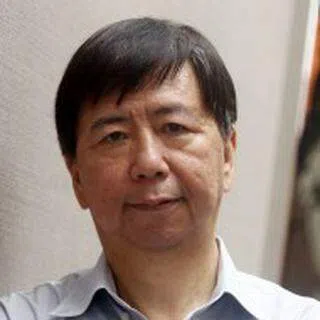Why are private enterprises reluctant to invest in China?
China's return to being politics-centric is the fundamental cause for the private sector's reluctance to invest in the country and the slow growth in the Chinese economy. Economist Chen Kang gives his analysis.
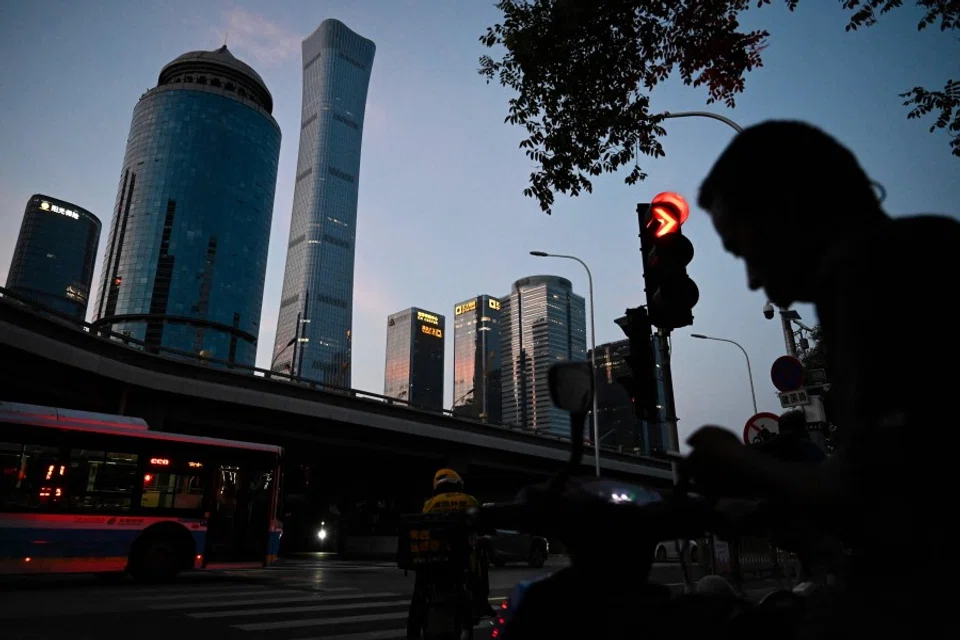
According to data since the second quarter of 2023, China's post-pandemic economic growth has weakened, with clear signs of deflation. The feeble economy closely relates to the reluctance of private enterprises to invest. The growth of private fixed assets investment (FAI), which accounts for over 50% of the total FAI, has slowed from 23.1% in 2013 to 10.1% in 2015 and 4.7% in 2019, and even plunged to -0.2% in the first half of 2023.
To arrest the situation, the Chinese government has recently unveiled the 31-point plan and 28 measures to boost the private economy. However, the reluctance of private enterprises to invest is closely related to China's return to being politics-centric in recent years. Implementing these measures and restoring the confidence of private entrepreneurs will depend on the changes in the political environment.
The politics-centric tradition
The tradition of being politics-centric originated from the concept of "taking class struggle as the key link" during the Mao Zedong era, when private enterprises were not permitted at all. This is because, according to Marxist theory, private enterprises would result in exploitation and an exploiting class.
... being politics-centric in communication is also articulating moral righteousness.
The politics-centric tradition has two main characteristics. The first characteristic is that conventional governance is based on "Confucianism externally and legalism internally" (外儒内法), which means following the Confucian beliefs in external communication but relying on legalist means in practice.
In The Analects, Confucius said, "A man of virtue understands and observes what is morally right; while a petty man only has his eyes on and goes after what brings him personal gains" (君子喻于义,小人喻于利). Likewise, being politics-centric in communication is also articulating moral righteousness.
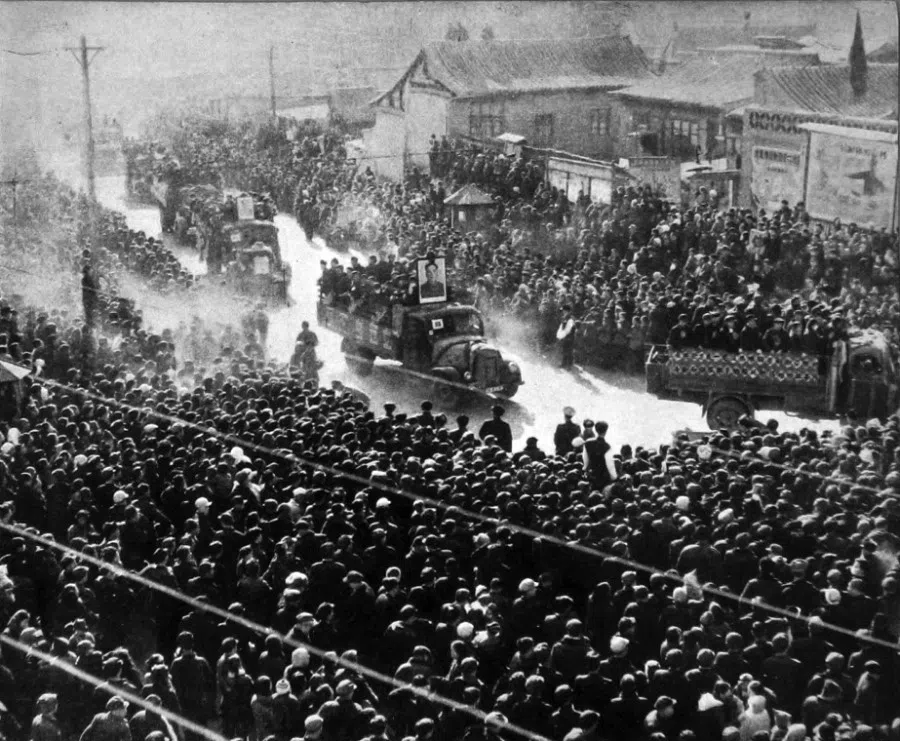
Moral righteousness can be a grand narrative, such as eliminating exploitation, achieving equality and emancipating two-thirds of the world's people from suffering. It can also be a collective identity, such as drawing a clear line between friend and foe as well as standing firm on the position of social class. It can even relate to the accomplishment of common goals and missions, including China's land reform, the Four Pests campaign (除四害, eliminating flies, mosquitoes, rats and sparrows), the Great Leap Forward and the Cultural Revolution.
Most importantly, this moral righteousness must demonstrate loyalty, with the most political being loyalty to the country and leaders. It also entails creating symbols and exemplary models as well as criticising the pursuit of personal gains by prohibiting rewards and material incentives.
The ruler's exclusive way
Despite communicating moral righteousness, virtuous men are few and far between, so personal gains are a necessity. There is a saying from Chinese legalist philosophers, which originated from Guan Zhong (管仲) and was later developed by Shang Yang (商鞅), that "there is an exclusive way to material riches and glory" (利出一孔).
Legalists believe that the state should block all channels that benefit the ordinary people and instead only allow them to fulfil their desires through the ruler's exclusive way, which is to direct them to the two occupations of agriculture and warfare.
... the state wields absolute power and the system generates all benefits for the people...
This belief advocates that the ruler decides on the lives and livelihoods of his subjects and the people to ensure that they "support and be loyal to the ruler without question and treat him like their parents" (拥戴国君如日月,亲近国君如父母).
The "exclusive way to material riches and glory" in governance has been impeccably implemented when China was a centrally planned economy with an extremely high degree of public ownership. Here, the state wields absolute power and the system generates all benefits for the people, including restricting 200 grams of meat a month for each person and the availability of peanuts and melon seeds only during Spring Festival.
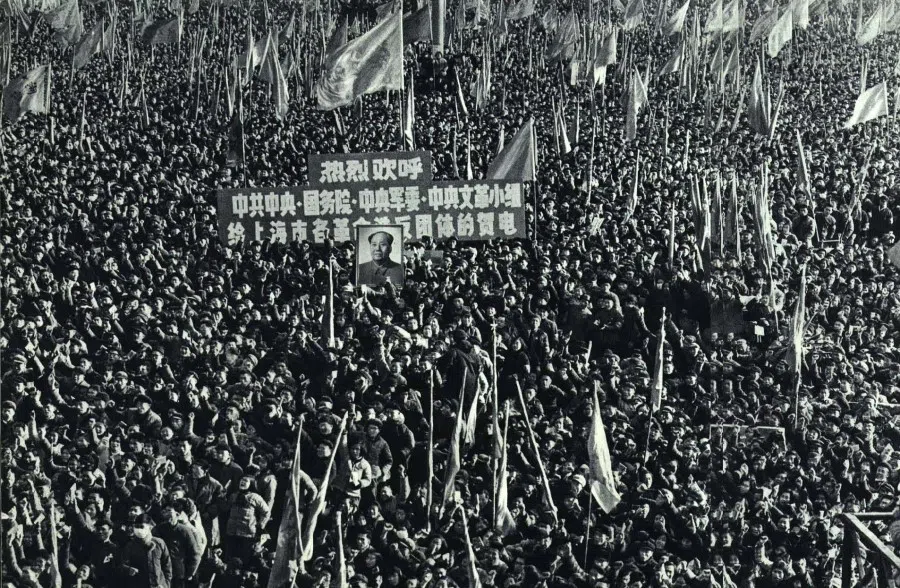
This "exclusive way" was pushed to the extreme when the Cultural Revolution advocated "severing the tails of capitalism" (割资本主义的尾巴) and stamped out commercial opportunities, which eradicated the farmers' only remaining source of personal income.
'Justified rebellion' as a tool
The second characteristic of being politics-centric is the idea that "to rebel is justified" (造反有理), which Mao used to mobilise the people.
When is rebellion justified? When one knows how to leverage politics. In a hierarchical society based on the power of officialdom, ordinary people will have the opportunity to "rebel" and exercise power against those ranked higher as long as they appropriately arm themselves with politics.
"Justified rebellion" is extremely appealing to those who pursue political progress, are aggrieved or vindictive, or are at the lower social strata but seeking to improve their social status. In the Mao era, with widespread propaganda through newspapers, radio, organisational learning, copying and disseminating slogans and posters, as well as the Great Networking Movement (大串联) by the revolutionary Red Guards in various parts of the country, the politically correct context was widely publicised to mobilise the people to rise up and help him destroy the intricately intertwined bureaucratic interest groups.
Politics had woven an extensive and tightly encircling net of "mass dictatorship".
The mobilised people were so spontaneously and consciously focused on politics that their immense power was felt in all facets of society. "Righteousness before kinship" (大义灭亲) manifested as a great political awakening within the family and between relatives and friends. It was very common for people to report the "counter-revolutionary" sentiments and deeds of close friends and relatives to the authorities. Politics had woven an extensive and tightly encircling net of "mass dictatorship" (群众专政).
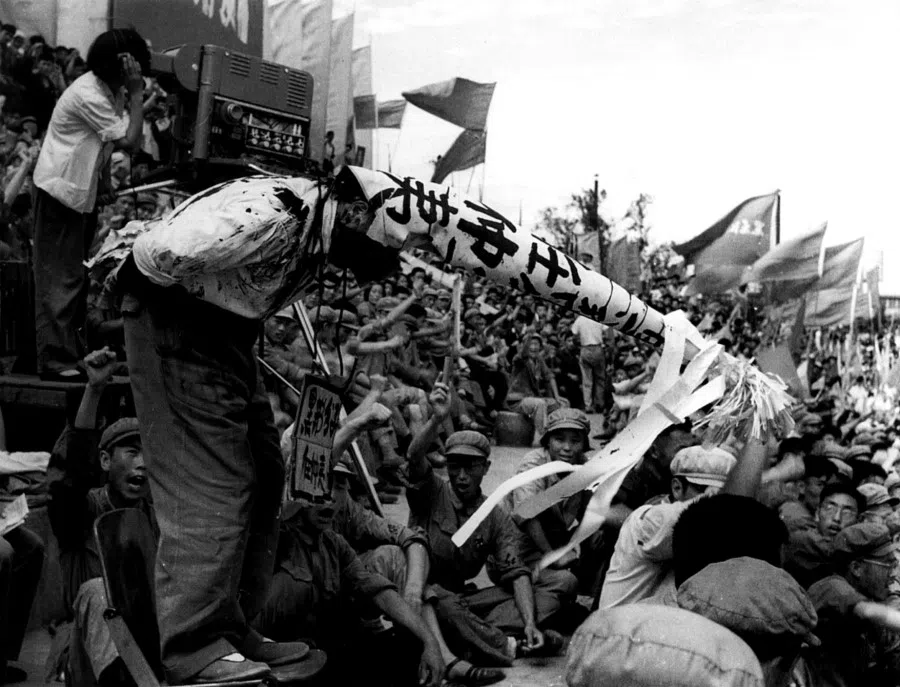
While a "justified rebellion" is an incisive tool in class struggles and the fight against bureaucracy, it undermines the normal administrative order and aggravates the economy that has been suppressed by the "exclusive way to material riches and glory". After the intense fixation with politics during the Cultural Revolution, China's economy was on the verge of collapse.
From being politics-centric to interest-centric
China's leaders learned their lessons from the Cultural Revolution and wanted to shift their focus from politics to economic development. However, it is not easy for China, a vast country that had been politics-centric, to do so.
Politics was replaced by interests during China's reforms, and the stick and carrot switched places. The leaders used the phrase "poverty is not socialism" (贫穷不是社会主义) to build consensus, as well as advocated "decentralisation and giving up a portion of the benefits" (分权让利) and "development is the hard truth" (发展是硬道理) to re-orientate the local governments' interests and change their performance indicators.
The separation of party from government and government from enterprise helped to reduce ideological interference with economic activities. A basis for systemic innovation was also provided through the "three beneficiaries" (三个有利于) - benefitting the productivity of the socialist society, the strength of the socialist state, and the people's living standards.
Promoting the market economy was the most straightforward way to direct the people's verve in politics towards market activities for their interests and benefit.
After the Cultural Revolution ended, China's leaders completely overturned the idea of "justified rebellion" and severely punished the rebels during the Cultural Revolution by eradicating the "three kinds of people" (三种人), i.e. those who thrived from rebelling, those embroiled in factional thinking, and those engaged in unlawful and violent activities.
Promoting the market economy was the most straightforward way to direct the people's verve in politics towards market activities for their interests and benefit. However, adopting the market economy was certain to end the centralised planned economy, forming "multiple ways for the people to gain material riches and glory" (利出多孔), which was opposed by the conservatives.
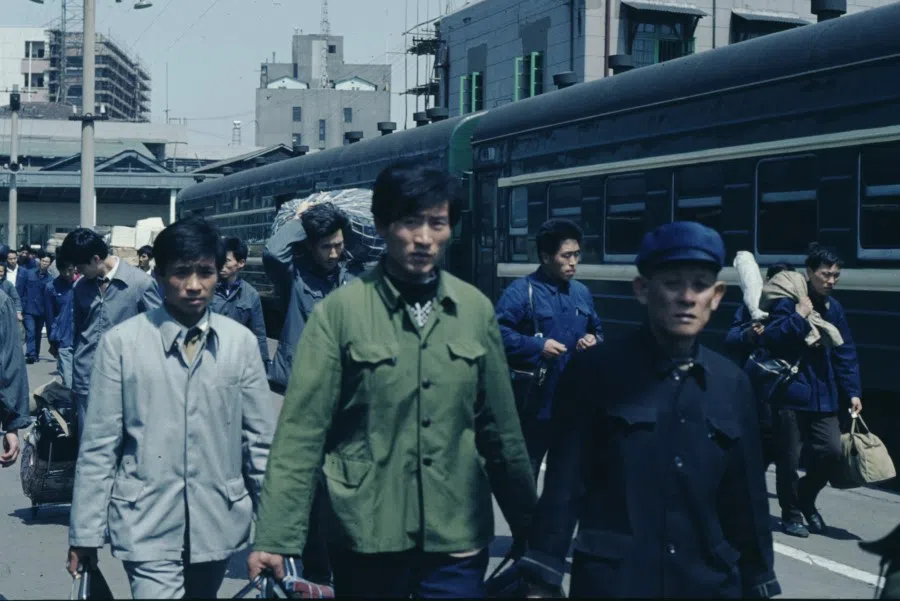
In 1987, the reformist leaders found a way to justify the market-oriented reform. They argued that China was then at the "primary stage of socialism" (社会主义初级阶段) with low productivity and an undeveloped commercial economy, which should be allowed to develop. Furthermore, although public ownership was to be predominant, other systems of ownership could concurrently develop, lending legitimacy to private enterprises.
From economic development to 'harmonious' development
As the market economy developed, living standards generally improved. However, market reforms for resource allocation severely lagged behind due to the limited development of the markets for the factors of production. The distribution of production resources largely remained in the hands of the government. Increasingly, corruption and power-for-money deals were blatant, income distribution became unequal, and environmental pollution worsened.
The development of the market economy also challenged the bottom line of socialism. On the one hand, the development of private enterprises encroached on the businesses of state-owned enterprises and the predominance of public ownership. On the other hand, out of their own interests, private entrepreneurs did not necessarily listen to the government and utilised their resources to seek policy changes.
Most importantly, "the primary stage of socialism" was only a stopgap measure that did not provide a theoretical basis for the long-term survival of private enterprises. As private enterprises are privately owned, it follows that private entrepreneurs are capitalists. So, in the eyes of many, it was undoubtedly deviant to permit private entrepreneurs to join the Chinese Communist Party (CCP) as members.
... "harmonious development" should be emphasised and the problems of corruption, income inequality and environmental pollution should be dealt with.
By the turn of the century, the drawbacks of this development model were increasingly evident, leading to greater social fragmentation. Those whose interests were dented during China's reforms and opening up as well as those who believed that the state had deviated from socialism were increasingly dissatisfied with the market reforms.
The new leader realised that not every problem could be solved by economic development; instead, "harmonious development" should be emphasised and the problems of corruption, income inequality and environmental pollution should be dealt with. Due to constraints, however, these problems have not been effectively addressed.
Return to being politics-centric
Change was only evident after the 18th National Congress of the CCP, notably a return to being politics-centric, once again swapping the carrot and stick. Economic development and GDP were no longer of paramount importance. Instead, the CCP's emphasis was "do not forget the original intention and keep the mission in mind" (不忘初心,牢记使命), using the socialist values to reshape the regime's legitimacy.
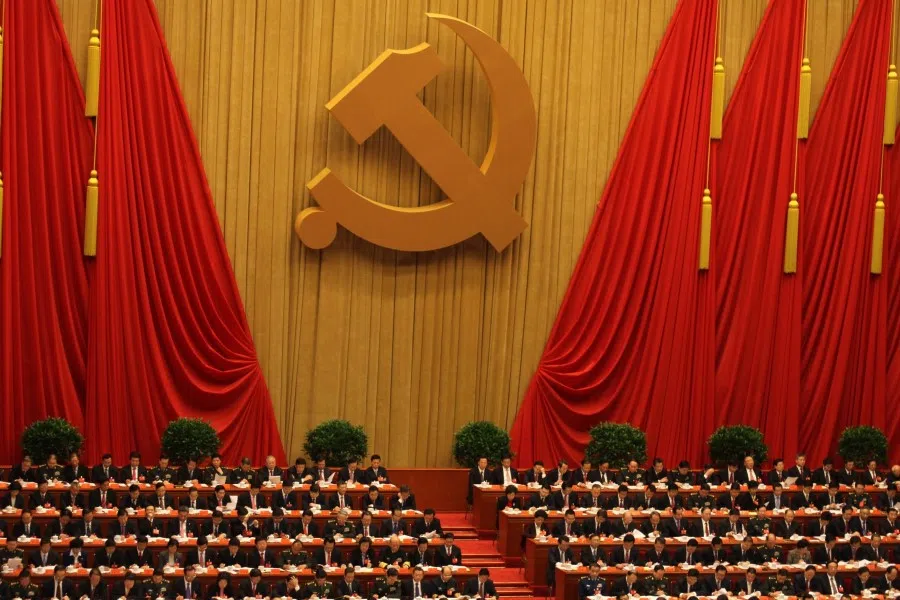
To consolidate the core position of the new leader, the CCP then began an anti-corruption campaign to crack down on corrupt officials and end the ineffectiveness of collective leadership at the top. Furthermore, the segregation between party and governance was ended and power was centralised through "the party exercising overall leadership over all areas of endeavour in every part of the country" (党领导一切).
Using "party building" (党建, or establishing party organisations) as the organisational basis for being politics-centric, it not only rectified and reorganised the undisciplined grassroots organisations but also expanded the party organisations within social establishments and private enterprises. It even extended to party committees being set up in delivery businesses to organise delivery workers.
China's entire bureaucracy received the signal loud and clear. By being politics-centric, any and every political mission must be accomplished without fail, including anti-corruption, pollution control, poverty alleviation and the Belt and Road Initiative. With the bureaucracy focused on these political missions, the outcomes have been effective.
A possible outcome is that the left wing would clearly be encouraged.
In the politics-centric era, it is not enough to merely accomplish political missions. It is also important to "keep in alignment" (看齐意识) with the leader, so that one can be aligned through some guesswork even when the political signal is less than crystal clear. The leaders' speeches and articles published by the main newspapers and journals must be carefully read and understood. Important online commentaries must be heeded and deemed politically correct as long as they are not deleted.
A possible outcome is that the left wing would clearly be encouraged. All of a sudden, the "primary stage of socialism" will soon come to an end, and opinions on restricting the development of the market economy and the demise of private enterprises are rife. As a result, the business environment for private enterprises has rapidly deteriorated.
Avoiding damage in the internet age
Being politics-centric has changed the performance indicators, from emphasising the single objective of economic growth to multiple objectives of "not only ... but also" (既要-又要). It has also altered the incentive mechanisms, from incentivisation to punishment. Consequently, being politics-centric has drastically transformed the behaviour of government officials, from pursuing benefits to avoiding damage.
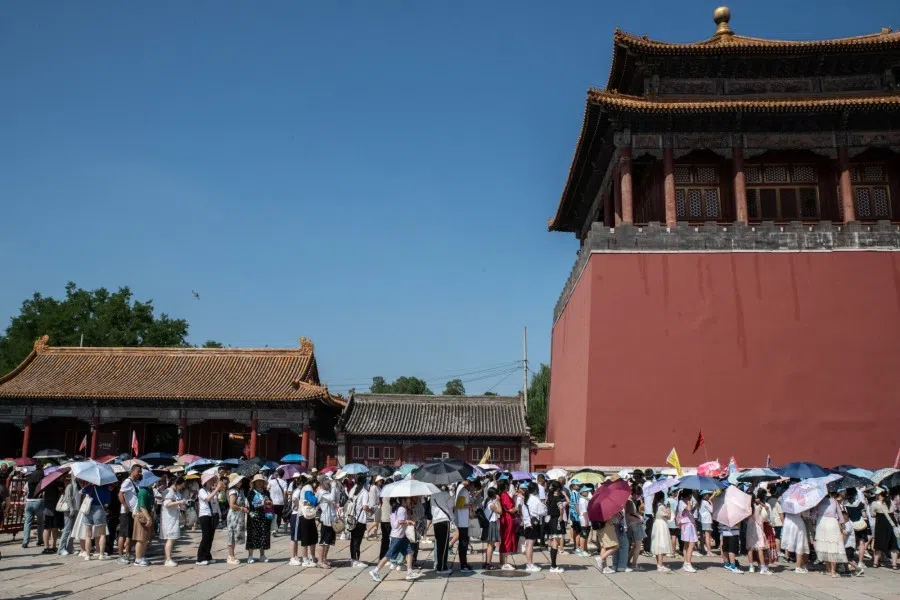
In the bureaucratic pyramid of public administration, the common agency or the multiple accountabilities problem often happens. When contradiction occurs among multiple objectives set out by superior officers, the subordinates will have to prioritise and work diligently on some but perfunctorily on others.
Faced with the directive to "not only ensure dynamic zero but also maintain economic growth" during Covid-19, the leaders of local governments knew very well that dynamic zero was more important. Similarly, amid the confrontational China-US relations, "safeguarding national security" is clearly more important compared with "developing the private economy".
In this climate and motivated by "avoiding damage", the leaders pay more attention to the views of the departments responsible for pandemic control, national security and regulation. Hence, although the departments responsible for the economy may want to make a difference, the leaders would adopt the extreme left-wing attitude and be more conservative than liberal for matters that may affect their job security.
In the internet era, the actions of opinion leaders further affect the behaviour of government officials.
Being politics-centric also requires mobilising the people and adopting the "mass line". Many are excited by the return to the politics-centric tradition. They frown upon and bear much dissatisfaction over the occurrences in society, and rush to report and expose various politically incorrect sentiments and deeds.
"Big Vs" (大V, verified internet personalities) lead the way for netizens by organising online sessions to criticise and denounce one after another. Their authoritative mentality is no different from that of the villager who armed himself with a crescent blade to block the access roads to the village, or that of the fierce security guards in residential areas during Covid-19. These are the ones from the lower rungs of the hierarchical society due to the power of officialdom, and they now enjoy the power to control others.

In the internet era, the actions of opinion leaders further affect the behaviour of government officials. When government departments will most likely be held accountable if they fail to respond to roused public opinions, the views of the radical public can readily become government policies. This reaction is evident from the crackdown on the education and tutoring and entertainment industries.
In the politics-centric era, while some government departments can resort to inaction and do nothing, others are frightened and walk on thin ice. Influenced by circumstances and public opinions, the assiduous ones may opt to even pre-empt situations and public opinions. Their motivation remains to avoid damage.
In such a business environment, they can surely only be thinking of transferring assets overseas and immigration instead of continued investments.
What it means for businesses
The escalation of this interaction between the government and society has subjected private enterprises, the "original sinners", to the inevitable fate of greater regulatory risks and uncertainties. Private enterprises face greater difficulties to secure loan financing and higher compliance costs.
In recent years, the Supreme People's Court has issued a document requiring the courts to safeguard the legitimate property rights of private entrepreneurs when making judgments. Retrials by the Supreme People's Procuratorate have resulted in the release of over 2,000 private entrepreneurs who have been detained for periods beyond what is legally prescribed.
The deprivation of property and personal freedom is undoubtedly the most severe threat to private entrepreneurs. In such a business environment, they can surely only be thinking of transferring assets overseas and immigration instead of continued investments.
Being politics-centric casts a huge net on everyone, resulting in widespread helplessness. Although it is less potent than "mass dictatorship" during the Cultural Revolution, it is enough to overwhelm private entrepreneurs. This is not what the leaders wish to see because a sluggish economy will definitely affect social stability.
However, being politics-centric is a package deal and one has to take the good with the bad. It remains to be seen whether the confidence of private entrepreneurs can be restored.
This article was first published in Lianhe Zaobao as "中国民营企业家为什么不愿意投资?".
Related: China's private sector has continued its rise against all odds | How Chinese private firms can be made more confident of the government's support | Can private Chinese enterprises truly 'develop boldly and with confidence'? | Private enterprises in China feel the heat of government influence | Will Beijing truly 'reconcile' with Chinese private enterprises in 2023? | China's distrust of private enterprises goes back a long way | Can China rally private enterprises and boost domestic demand?
